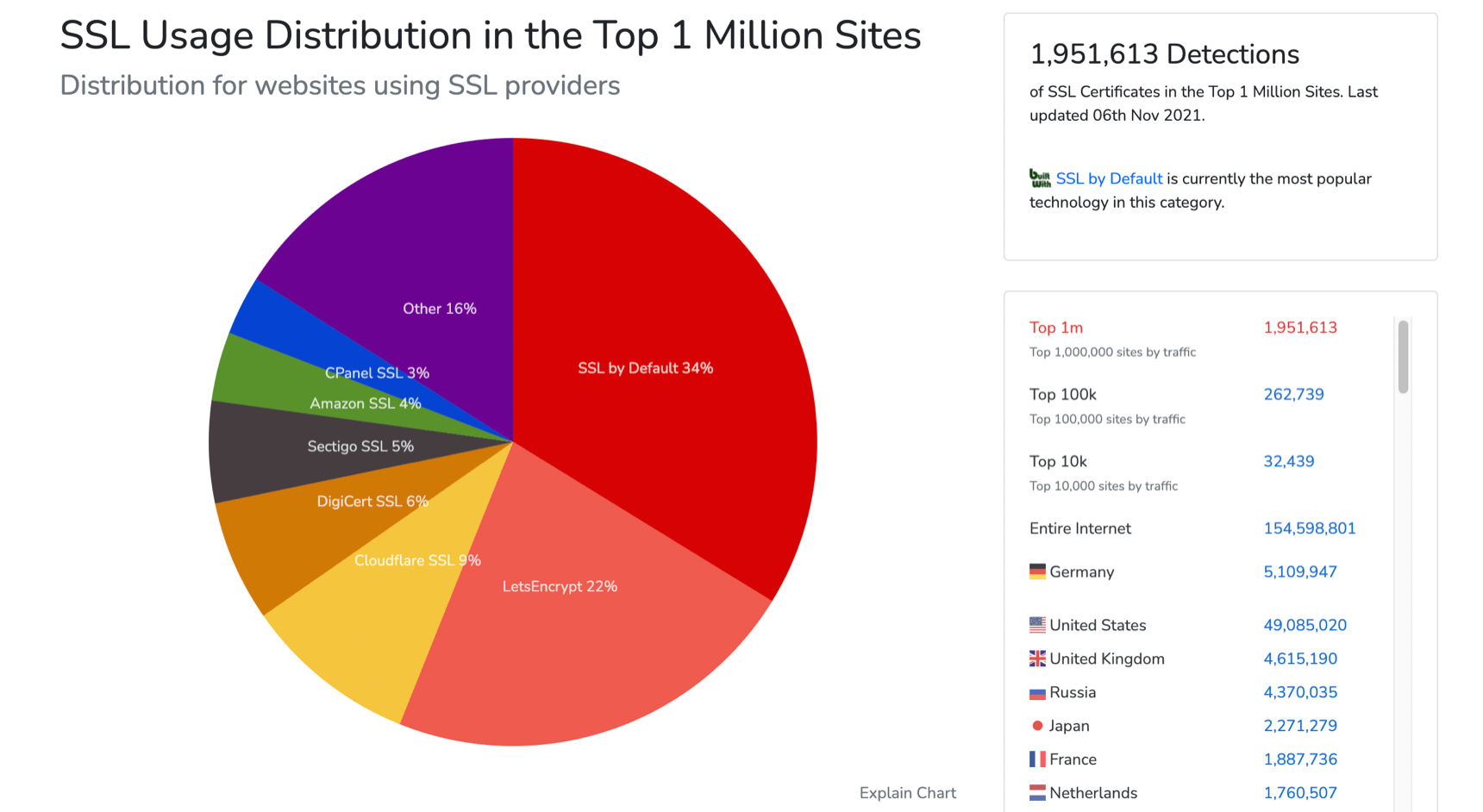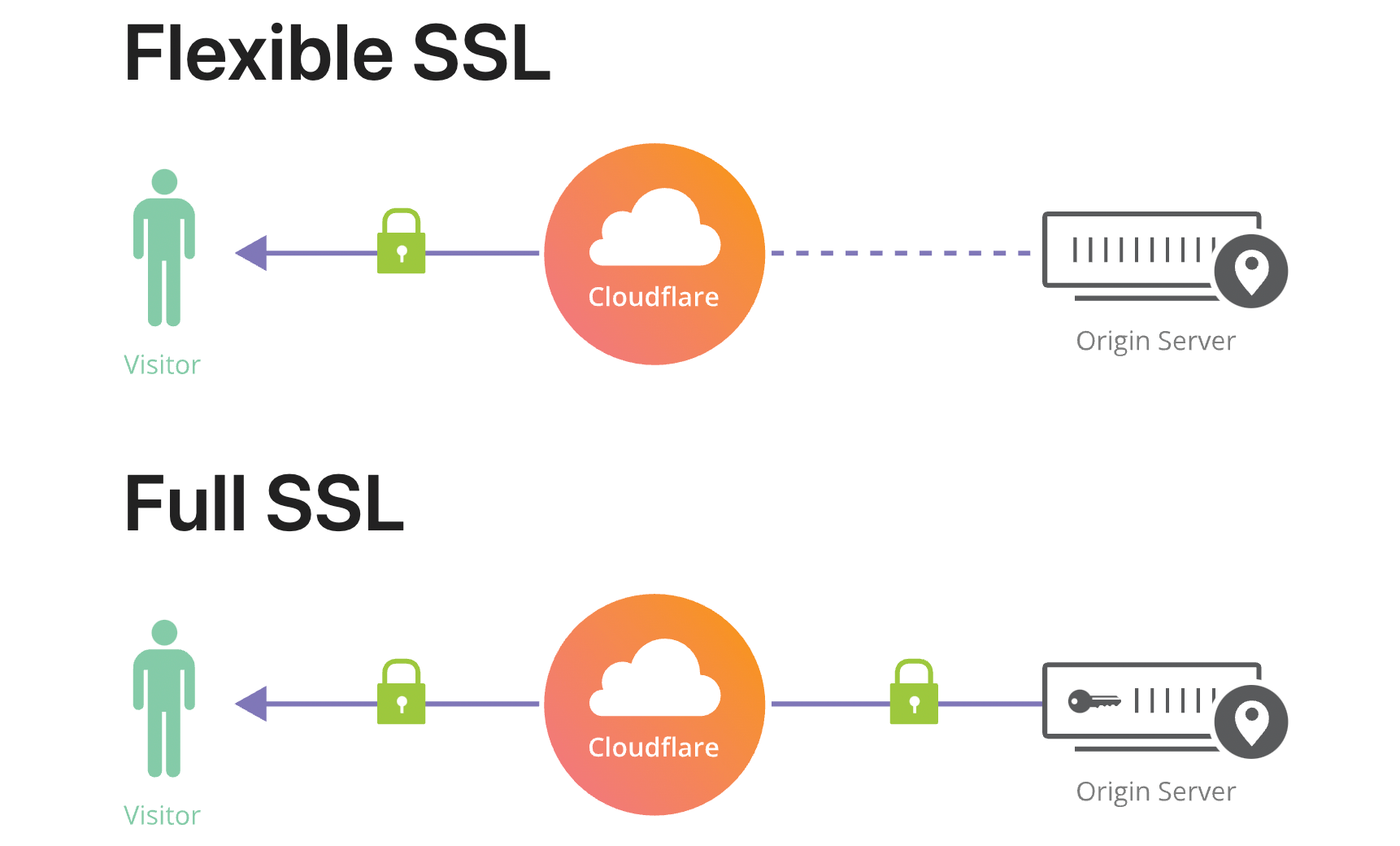In this day and age, all the most successful websites are highly reliant on user data and user experience. Everybody is worried about cybersecurity, as connections between browsers and servers aren’t always as fully encrypted as they should be. So how can data be handled safely?
HTTPS is an essential piece of digital architecture to maintain a user’s right to privacy, which provides three different layers of protection:
- Encryption: While a user browses, it’s possible for people to “listen” in on what they’re doing. Any exchanged data will be encrypted to keep it safe from hackers and eavesdroppers.
- Authentication: HTTPS websites prove to users that they are communicating with an honest website that’s not fake. It protects anybody from middleman attacks and promotes user trust, helping to grow an online business.
- Integrity: Data transferred via HTTPS can’t be corrupted or modified during transfer without being detected.
Here in this article, we’ll find out more about these layers. We’ll take you through what HTTPS is, why you need it, and how you can implement it. Ready? Let’s find out more.
What is HTTPS?
HTTPS is a secure version of common Hypertext Transfer Protocol or HTTP. It’s a system that allows you to send information between browser and server, transferring everything that’s needed securely, whether it’s credit card details or login IDs.
The ‘s’ stands for ‘secure’, meaning that your data will be encrypted and almost impossible for a hacker to get their hands on. An HTTPS address will have an SSL certificate attached with it, showing the world that this is a secure site. Think of it as your site’s personal security guard or camera.

Using a web server such as Apache or Nginx can work as a middleman to establish secure back and forth communication between server and browser. Servers such as these are highly customizable due to their open-source nature.
As a web developer, you can use its source code and adapt its many modules to suit your site’s needs, e.g. specific modules to help with security, password authentication, URL rewriting, and more.
Website integrity and trust
You’ll want to use HTTPS if you need intruders and potential hackers to be kept at bay. They need to be far removed from tampering with your website. From scripts and images to cookies and HTML, any unprotected resource that travels between website and user can be exploited by a hacker if you don’t have HTTPS protection.
SSL Certificates Categories:
- Extended Validation: Entrust EV is currently the most popular technology in this category.
- Root Authority: LetsEncrypt is the most trusted by all major certificates.
- Wildcard
An intrusion can occur at any time and at any part of the network, including a Wi-Fi hotspot, user computer, or mobile phone to name a few. When you have an SSL certificate and HTTPS website protection, the browser will display a green lock right by its URL bar. This increases the audience’s trust in you – people only visit secure websites that they can feel safe at.
A lot of WordPress hosting services will offer their SSL certificates for a nominal fee, allowing successful website https configuration and your site’s HTTPS status to be shared for the World Wide Web. More expensive certificates are also available that can be registered to specific web properties. Different services offer different types of certificates for different prices.

As an example, with a content delivery network such as Cloudflare, your site can gain HTTPS status for free if you use a multi-domain SSL certificate. Services such as Cloudflare are useful for developers who don’t want to keep up to date with SSL certificate expiration or run into problems configuring their SSL, as all of this can be managed with a click of a button.
User privacy and security
One of the most common misconceptions about people who create websites is that HTTPS is only needed to handle sensitive data and communication, but this is not the right way to look at the whole picture. Any unprotected HTTP request can reveal a lot of info about the user identity.
Hackers can aggregate data about your site’s users and make inferences about their intentions and behaviours, working to de-anonymize user identity. If a user visits an unprotected fake website, for instance posing as a real medical site, they could disclose an array of personal health information to their employers.

Search Engine Optimization
Whether you’re running an artisanal bakery or casino lastschrift with WordPress, it’s of utmost priority for your website to pop up on either the first or second pages of Google search results. People need to find what they’re looking for, and they cling to these pages for guidance.
One of the most common methods to improve your ranking is to analyze keywords and see what people are searching for, using online tools such as Google Analytics. You can add the most popular and trending keywords to your images, titles, paragraphs, and much more.
But how does HTTPS affect Search Engine Optimization and boosts your website’s ranking? We can look at the most popular search engine Google for an answer. This company wanted a way that secure sites could be more easily found, so the search engine goes through and looks at HTTPS. It’s now one of the most important factors that will lead users to sites through a Google search, so if your website is protected by HTTPS, it’ll be visible on most search engines, and most likely, high up in the pecking order, too. If your website is similar to a competitor’s in almost every way, but they don’t have HTTPS and you do, you’ll have an obvious advantage.
So what about mobile devices? Google is indexing mobile devices, making their algorithms turn towards the mobile versions of sites and giving these a greater weight in SEO rankings. For mobile sites to be indexable, Google recommends migrating toward secure sites that implement HTTPS.
PCI compliance
If you’re in charge of eCommerce websites, HTTPS is vital if you want your site to be compliant with Payments Card Industry standards. The PCI is a set of operational and technical requirements mandated by credit card companies and banks to ensure that card transactions can be processed securely across the internet. The main set of rules known as the Payment Card Industry Data Security Standards was established to keep credit card user data safe.
Requirement 4 of these standards recommends that all the best website builders need to use strong cryptography and security measures so that transmitted data is never intercepted or compromised – this is where HTTPS configuration comes into play. The requirement forbids card payments from taking place anywhere other than on HTTPS sites with SSL certificates.
When you’re looking at getting an effective SSL certificate for your site, you should look for the following:
- TLS versions higher than 1.1
- Cyphers of at least 128 bits in size
- DH parameters of at least 2048 bits
- Strong cypher suites
- Strong private keys
- No export suites
- No anonymous key exchanges
- No insecure compression or renegotiation
- A trusted company from a trusted Certificate Authority
To configure your SSL certificate and use HTTPS, there’s no hocus pocus to it, you’ll simply want to follow these steps:
- Create private and public key pairs.
- Prepare a CSR (Certificate Signing Request), including any information you have about the organization and the public key.
- Based on your CSR, request an HTTPS certificate from an appropriate certification authority.
- Install your signed-and-certified HTTPS certificate on your web server.
Your website will be better off with HTTPS
Along with an increase in internet traffic comes ever more increasing complexity – hackers, SEO, data, and much more. The internet is full of surprises, but we hope that you’ve taken our thoughts on board and will incorporate HTTPS into your site. By encrypting your traffic to WordPress site with SSL certificates, nobody will be able to snoop on user data, and the green lock icon in their browser bar will be seen as a symbol of trust.
In combination with this, everybody will be able to find your trustworthy site, as search engines such as Google will give priority to HTTPS sites. These are all great reasons to get familiar with HTTPS and incorporate it into your site today. Here at Ninja Team HQ, we recommend using Cloudflare SSL to get your WordPress sites to work with TSL vulnerabilities at scale.
When you’re choosing a website builder, what do you look for? Tell us your thoughts on website builders or anything on HTTPS in the comments section below.
Thomas Glare is a passionate freelance content writer, always striving to inspire others and bring insight into the endless possibilities of the modern times we are currently living. He continues to improve his knowledge and is the co-designer of a Book of ra deluxe, one of the most popular games from Novomatics.